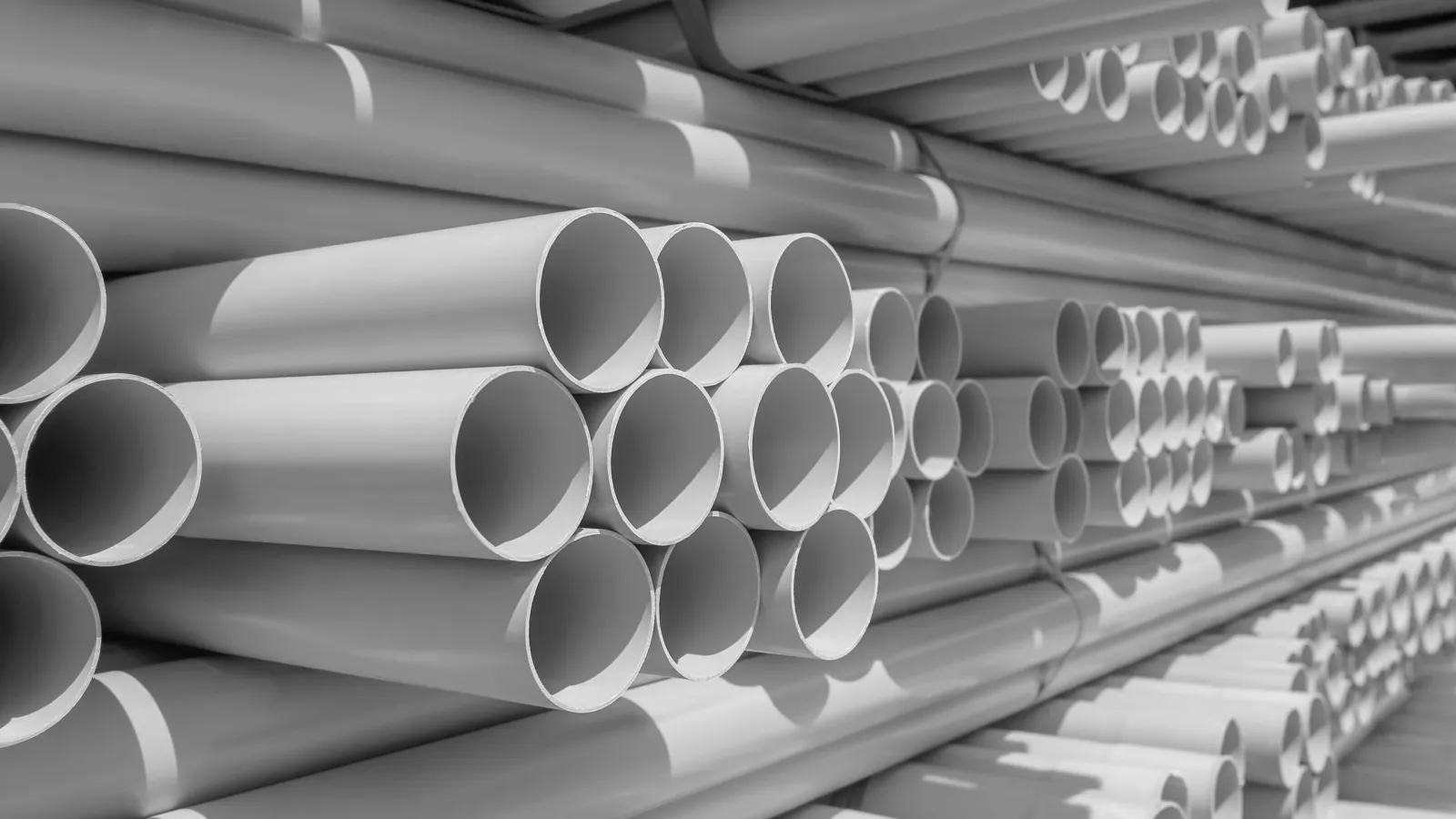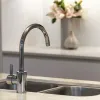Ask any plumber what your sewer pipes are made of, and they’ll probably respond with this question:
How old is your home?
That’s because older properties might have older sewer lines. And old sewer pipes were made from different materials than what is in use today.
You know that phrase, “They don’t make ‘em like they used to?” The sentiment is that a new thing isn’t as good as an old thing, which might be true for, say, musical instruments or car parts.
But it definitely isn’t true for sewer pipes. The new stuff is better than the old stuff. By far.
Let’s take a look at the sewer line materials that are common among American residential properties. First, we’ll consider the types of sewer pipe that were common in older homes before looking at what materials are in common use today.
Types of sewer pipes in older homes
If your home was built before the mid-1970s and the sewer pipes have never been replaced, there’s a good chance they’re made from one of the following types of material:
Cast Iron
Cast iron pipes have been in use for centuries. Many American homes contain cast iron pipes, and we still encounter it often when servicing sewer lines. Cast iron is more robust than some types of pipe material, but less sturdy than modern piping. Over time, it’s subject to corrosion and can crack or collapse.
Clay
Manufactured clay sewer lines were also common until the 1970s. Although the idea of a clay sewer line might seem odd (here in Atlanta, the surrounding soil is also a type of clay), these pipes were considered fairly reliable during most of the 19th and 20th centuries. Like cast iron, they are subject to damage and corrosion over time.
Concrete
Same story here. Concrete pipes were common during the 19th and 20th centuries but were phased out in favor of PVC and ABS during the 1970s. If you’ve ever seen a crack in a slab of concrete, you’re probably not surprised that these pipes can crack under pressure.
Orangeburg
This stuff was always pretty cheap. We don’t encounter Orangeburg much in the Atlanta area, but that’s not because it wasn’t used here. It’s because a lot of it has long since failed and been replaced.
Orangeburg pipes were made of tar, wood pulp, and asbestos. Manufactured in Orangeburg, New York, it had the shortest lifespan of all the old pipe materials.
Types of sewer pipes in newer homes
Since the 1970s, builders and plumbers have installed PVC or ABS sewer pipes in new homes. PVC is more common, and it’s what we install today.
Compared to older materials, PVC and ABS are more flexible, highly robust, and can withstand a lot more abuse.
Abuse from what? Shifting soils, tree root intrusion, and stuff that really shouldn’t be sent down the drain or flushed.
Those things can still damage PVC or ABS, but damage is less likely than with older pipe materials. The lifespan of older pipe materials like clay and concrete, under normal conditions (where pipes are subject to the pressures described above), is only about 25 to 50 years.
PVC lasts anywhere from 50 to 100 years. And it can withstand quite a lot.
Why the type of sewer pipe material matters
With older sewer pipes on older properties, there’s just more than can go wrong. That’s not to say there aren’t sewer line problems in newer homes–there can be!–but older piping just has more potential points of failure.
Clogs
By now, you’ve probably heard that supposedly “flushable” sanitary wipes aren’t actually suitable for sewer pipes. They can bunch up inside the pipes and cause blockages.
What you might not know is that cast iron and concrete pipes are even more likely than PVC pipes to get clogged by these materials. In fact, older pipes are more subject to clogs of all types.
Why is that? Well, the older materials aren’t always perfectly smooth on the inside. There might be rough spots or burrs. So the food remnants or sanitary wipes can snag on a rough patch of pipe. From there, other stuff accumulates on the same spot and before you know it, there’s a blockage.
Pipe failure
One of the biggest sewer line problems we encounter in the Atlanta area is tree root intrusion into pipes. Concrete and clay, in particular, are relatively brittle. If the soils never shift and there aren’t any trees around, they’ll probably last a long time.
But around here, we do have lots of trees. Big ones. With roots.
The tree roots break these pipes and grow into them. Needless to say, this blocks the flow of wastewater and makes it impossible to run water or flush toilets.
Compared to PVC, older piping is more subject to tree root intrusion and other forms of physical damage.
Plus, these materials are just plain old. They can corrode with time, and a lot of time has gone by since they were installed.
Pipe repairs and replacement
If your sewer line has collapsed or has a leak, the type of pipe material plays a role in how you go about the problem:
- Are your pipes made from old materials? If you have a crack or a leak, it’s usually best to replace the entire sewer line. Otherwise, we might end up replacing a damaged section only to return in the near term to replace another damaged section.
- If your pipes are made from PVC or ABS, we can typically just replace the damaged section if there’s severe damage or a belly in the sewer line. It’s an easier, less invasive process.
- If there’s a crack in the pipe or the pipe isn’t otherwise accessible, it can usually be fixed via trenchless sewer repair (aka, pipe patches). If the crack is under a slab or a driveway, pipe patches are the way to go unless it’s made out of an older pipe material. In those cases, we can replace just the damaged section of pipe with PVC.
It pays to maintain your sewer line, whatever it’s made of
Be kind to your sewer pipes! Avoid flushing stuff that the pipes can’t handle and sending large food remnants down the drain.
Also be aware of the potential for tree roots to bust through sewer lines, especially if you live on an older property.
Concerned about a clog or think you might have a sewer line problem? We can help! PV Heating, Cooling & Plumbing provides sewer and drain services all across Metro Atlanta.
Call us today at (404) 798-9672 or schedule service online!





